Young farmer columnists: ‘Our hopes for 2023’
 © thekopmylife/Adobe Stock
© thekopmylife/Adobe Stock There are never dull times in the farming world, and the past 12 months have had their share of challenges and triumphs.
At this time of reflection, we ask our young farmer columnists how they’re feeling about the future.
From implementing new ideas to managing risk and remembering to make time for themselves, they reveal their hopes and personal aspirations for the year to come.
See also: Will’s World – we’re all going on a farming family holiday
Chris Bennett
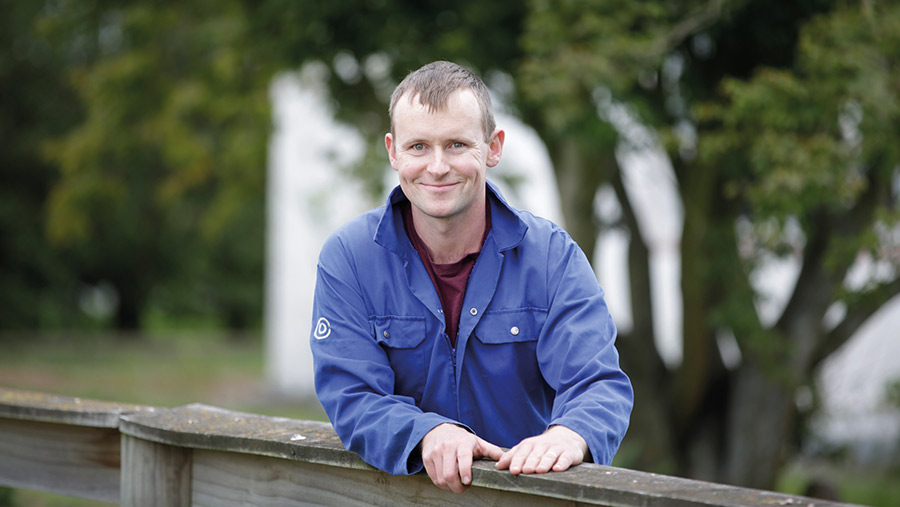
© Johnny Houston
I recently talked to my dad about when he took over the farm from his father. His hope, year on year, was simply to still be farming the following year.
Given the number of crises of recent times, I’m sure there are a lot of farmers who now find themselves with similar hopes.
As a recent returnee, I’ve become the fourth generation of Bennetts to farm at Brackenborough and my daughter has become the fifth generation to live here.
That is more than 100 years of us aiming to, and succeeding in, carrying on the farming dream.
So my hope, too, is to still be farming this time next year. To my dad’s credit, I have every reason to believe we’ll still be farming well into the future as the farm is in a good place these days.
More specifically, in 2023 I’d like to introduce new ideas. I’d like to begin rotationally grazing the cattle, we’re likely to introduce cover crops and we have recently signed up for the Sustainable Farming Incentive.
I want to make small changes without adding risk to what is already a high-stakes business.
For three generations my family have made their own small changes to overcome challenges and that has shaped the business into what it is today.
If I can do that too, one day my daughter could become the fifth generation of Bennetts to farm here.
Lucy Nott
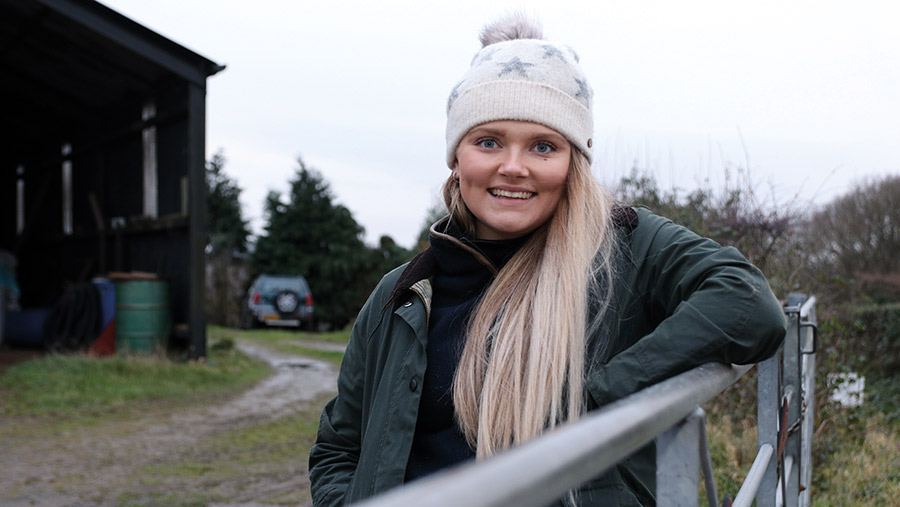
© David Nott
I’m one of those people who is always thinking about what I want to achieve and how quickly I can do it.
It’s quite exhausting actually. As soon as I accomplish something, I have a very brief moment of satisfaction before I’m worrying about the next thing.
Of course, in farming, a large amount of thinking ahead and planning is needed, but it’s easy to slip into a cycle of saying “things will be better when” and “once I’ve achieved this, I can do that”.
Farmers are incredible carers, whether that is for animals or crops. So why are we so awful at caring for ourselves?
My husband Ben and I are guilty of putting the blinkers on and work, work, working.
Due to taking on too many projects, we haven’t had a holiday this year, which has left us burned out, stressed and over-tired.
In 2023, I’m going to try to live more in the present and appreciate that what I’m doing now is most likely what I dreamed of doing last year.
I’ll still have my plans, of course, but I’ll be thinking much more about the process rather than the objective.
Ben and I will be trying to put our mental health first and remember the basics of self-care so that we can be better parents and smarter workers.
So what’s my big aim for 2023? Well, it’s pretty simple – to be happy. You’re welcome to join me if you like…
James Herrick
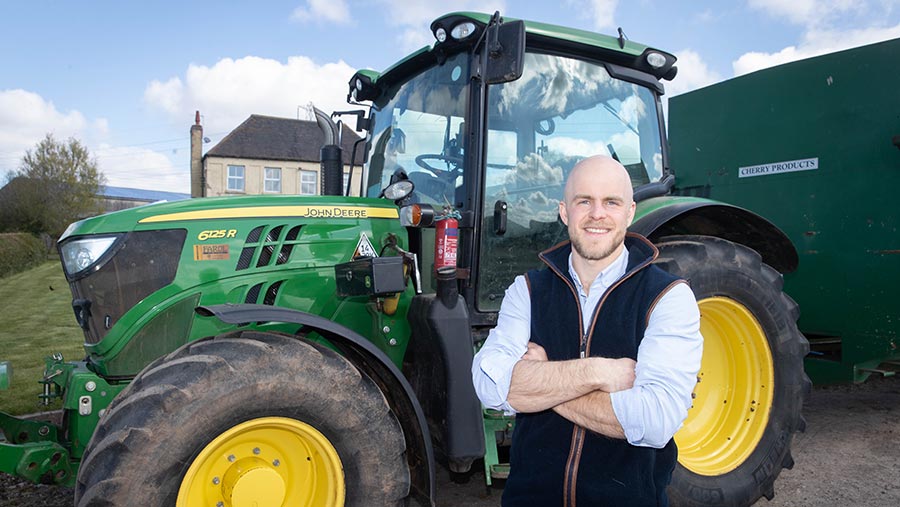
© Tim Scrivener
It has been a year of highs, lows and valuable lessons.
The elation of getting married and the despair of TB has certainly made 2022 a year I will never forget.
So what am I expecting from 2023? Honestly, I haven’t got a clue, but I’m sure I’m not the only one who thinks a bit of clarity on the future of farm support wouldn’t go amiss.
The endless whispers about what may or may not be happening are not ideal for building confidence within the industry.
I hope that the recent egg shortage becomes a catalyst for change in the approach that supermarkets take towards paying British farmers fairly.
We produce food to the highest standards anywhere in the world; that needs to be constantly relayed to the consumer to influence and empower their buying decisions.
The future of the suckler cow herd is something that particularly excites me. The loss of direct payments are likely to influence a change in direction for beef supply chains.
However, there is still a place for the traditional suckler herd. Driving efficiency, growth and longevity to create a profitable and sustainable enterprise is a challenge I’m willing to meet head on.
That being said, life isn’t all about what happens behind the farm gate. I’m hoping 2023 will be the year I take on take on my first 70.3 triathlon, with many hours of training providing me with some valuable headspace.
Maybe if things really go in my favour, I might even enter Britain’s Fittest Farmer.
Bridgette Baker

Bridgette Baker © Kathy Horniblow
The unpredictability of 2023 is nerve-racking as well as exciting, but I think if life doesn’t feel daunting in my 20s, then I’m not doing it right.
Most of my classmates (myself included) say we cannot wait to finish uni, but that’s just the third-year stress talking and, in truth, we will wish to go back to university once we start our next chapters.
For the first half of the year, I will be focused on writing my dissertation, which is based on soil health.
With lots of talk about carbon credits and regenerative agriculture, I will be comparing three UK beef production systems to identify the best method to sequester carbon.
Once the dissertation is submitted, I will finally be back home to the family farm to start finding my place, trying out different techniques to rear our calves with the shed space we have, start my Oxford Sandy and Black pig breeding herd and get more involved with my local Young Farmers’ Club again.
However, as fun as it was going to the beach with YFC during the 2022 heatwave, I sincerely hope we don’t have more summers as scorching as that – I am not built to withstand temperatures of more than 30C.
Climate change has made the weather extreme, but farmers adapt and will grow crops and rear livestock regardless.
My studies make me ever-more determined to create an efficient and sustainable, semi-intensive beef production system, rearing healthy animals and sequestering as much carbon as the land can.
Mike Neaverson
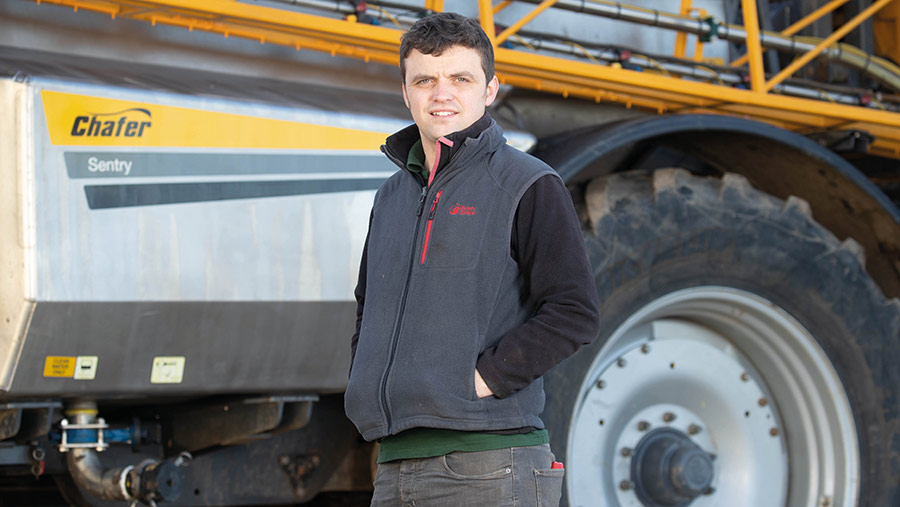
Mike Neaverson © Tim Scrivener
I have recently been to the memorial service of a neighbour and agronomy customer of mine who passed away suddenly earlier this autumn.
Actively farming well into his mid-80s, we had just the day before he died been walking a few fields of wheat together.
The eulogy at the service finished with the comment that he had bowed out from his lifelong farming career on a spectacular high.
This got me thinking. Among all the geo-political and economic noise, could it really be true?
But it absolutely is – in our little corner of Lincolnshire at least, 2022 has been a boots-on-the-ground farming year to remember.
Crops looked great coming out of a kind winter. A dry spring let us get on the fields early and well-rooted cereals got their feet into the water table.
Fields remained clean throughout the cool and bright early summer – perfect photosynthesis weather.
Then it came blisteringly hot and we were combining record quantities of dry wheat in mid-July. We’d broken the back of harvest before we’d normally have thought about starting.
The spuds didn’t much enjoy the 40C sunshine, but October was kind too and we got them all out – and all the wheat back in – in superb order. Farms around here have seldom looked better.
Some farming years feel unrelenting. But 2022 will quite rightly become a legend of my generation, just as 1976 has for my father’s.
I will be jolly pleased if 2023 turns out to be half as practically easy as 2022. And I’m sure that my late neighbour would have been too. Rest in peace, Mr Proctor.
Charlie Beaty
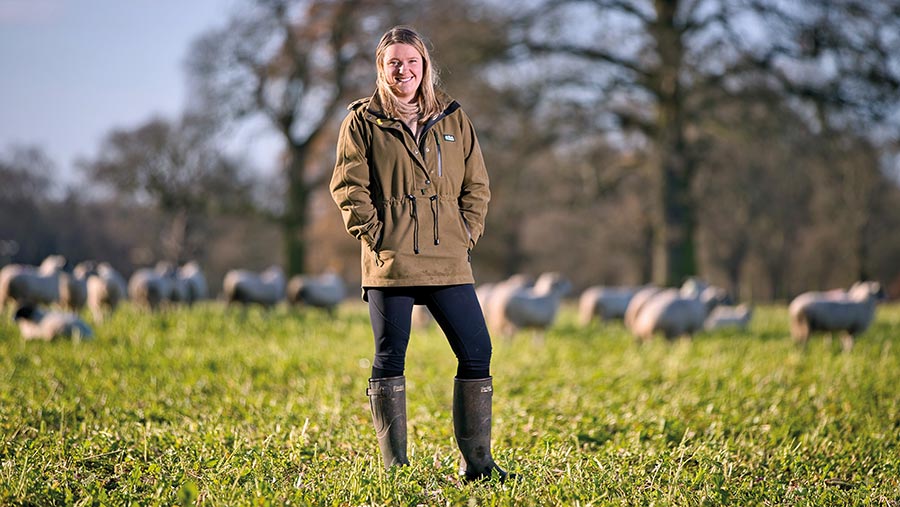
© Charlie Beaty
The past 12 months have gone too fast. It has been a year of highs and lows for me, but ultimately I know that I’m striding out of it in a better place than I was when I wandered in.
It’s nearly four years since I returned home to the farm, following a couple of years working in Australia and New Zealand – something I would recommend to everyone.
I came home and within a year we were thrown into the first lockdown when the Covid-19 pandemic hit.
I actually spent six weeks in New Zealand at the start of 2020, when rumours of coronavirus were reaching us.
It’s fair to say that none of us had even the slightest understanding of how much our lives would be affected.
Nearly three years on, life is still haunted by the pandemic, just like we’re still haunted by Brexit nearly seven years on. It’s easy to look back and wonder how life would have been different if it hadn’t been for that chain of events.
Would I still be farming at home? Or would I have walked away in favour of an easier lifestyle, a nine-to-five on a cushy salary and the ability to shut the door on my responsibilities when the weekend hits?
I know despite how pleasant that sometimes sounds, it’s not the life for me. I enjoy working with livestock, and being surrounded by animals is good for my mental welfare.
So while I don’t specifically have a list of aims for 2023, there is plenty for me to work towards – and plenty for me to look back on, take lessons from and remember to appreciate.
